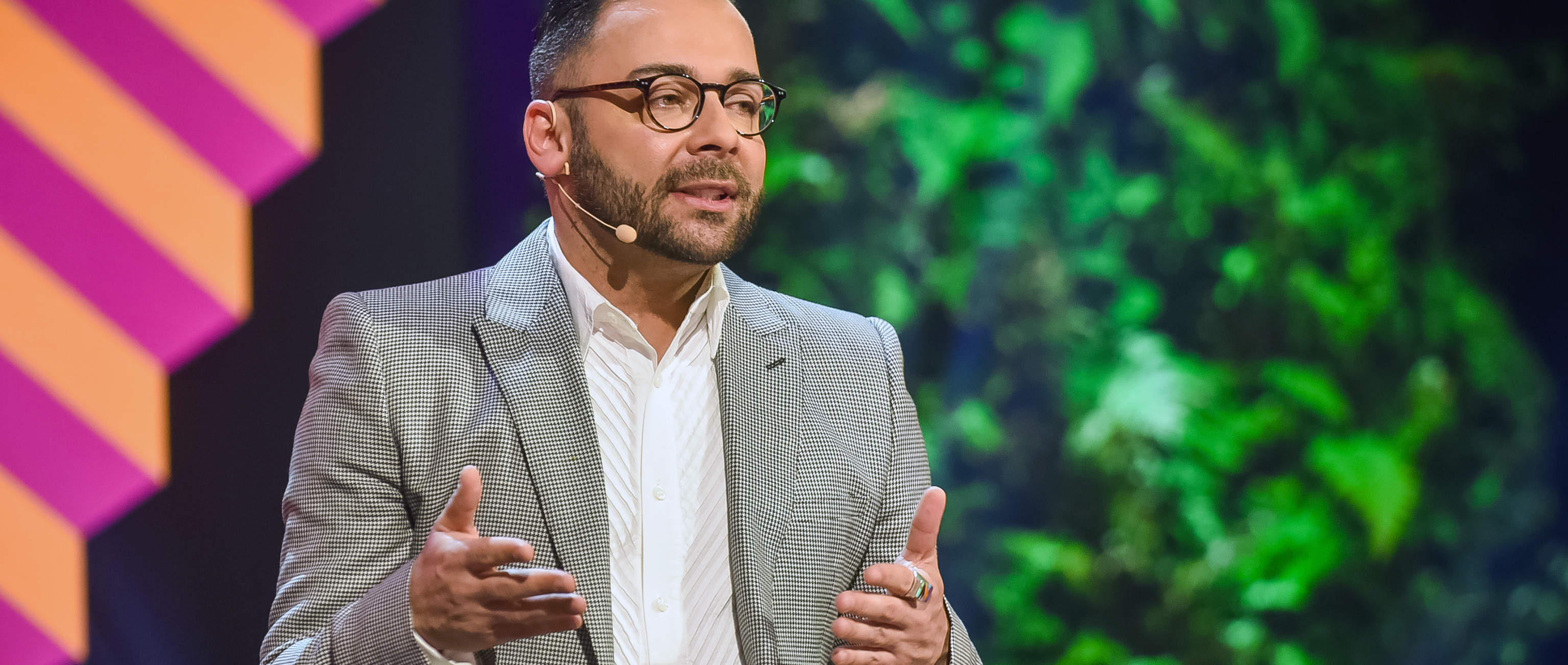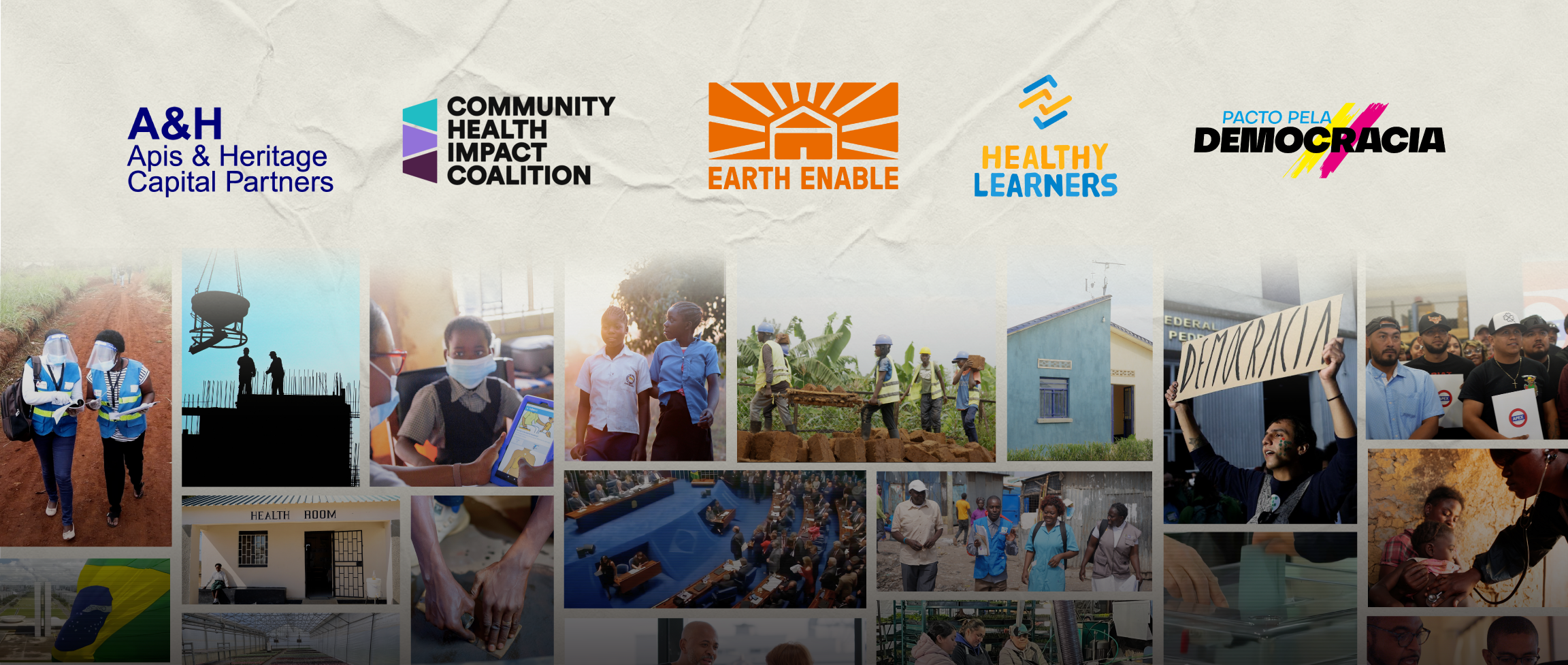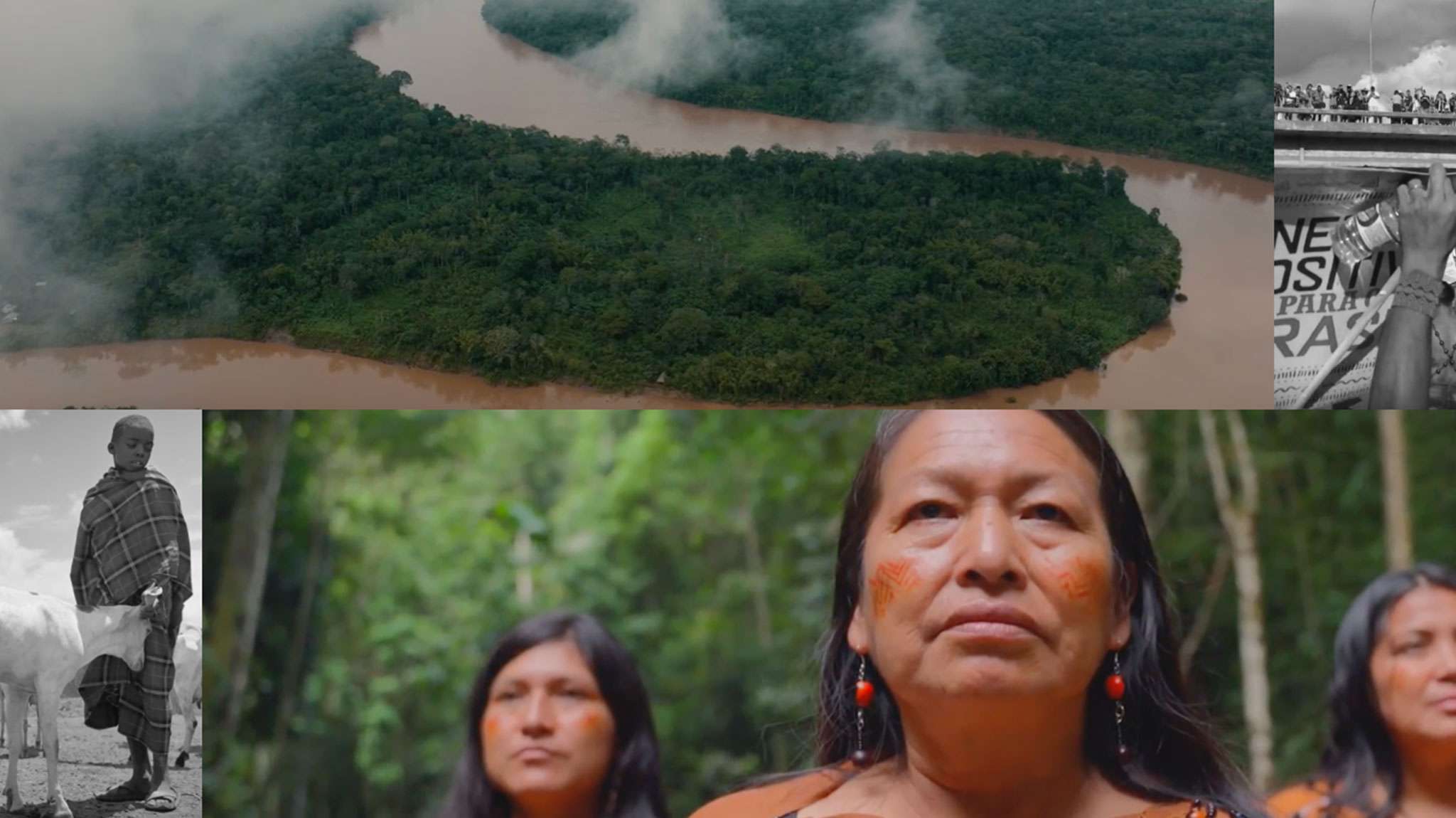Edgar Villanueva on Systemic Change Toward Decolonized Philanthropy
While philanthropy is no stranger to criticism, it has weathered some sharp critiques in the past year, helping to catalyze an opportunity for introspection, reassessment, and redesign. Edgar Villanueva, author of Decolonizing Wealth, is a leading voice in this growing conversation. At the 2019 Skoll World Forum, he shared his vision of a future of philanthropy built on trust, humility, and healing that works to dismantle the oppressive systems of inequity and injustice that created the need for philanthropy in the first place. Skoll Foundation Fellow, Nguhi Mwaura, recently chatted with Edgar to get his thoughts on authentic proximity, shifting power dynamics, and his outlook for systemic change in the field.
Nguhi Mwaura: As a person of color, new to work in philanthropy, I’ve come to feel like a gatekeeper and to realize that it’s difficult to move philanthropy to a more equitable place. How do you reconcile those dynamics in your work?
Edgar Villanueva: That chapter in the book was the most painful and has resonated especially for people of color because it’s really a conversation no one is having. It’s important to understand that white supremacy is being upheld by two pillars. The first are the ways of thinking of whiteness as superior, more expert. The other side of that is internalized oppression, and that’s the idea that even those of us who are people of color can internalize that oppression and perpetuate mindsets, behaviors, and leadership in a way that is just as damaging or abusive, perhaps, as those who are subscribing to white supremacy.
Everyone regardless of our backgrounds, we’ve all internalized whiteness at some level. It’s important that people of color find ways to hold ourselves accountable while fighting against this oppression, to ask if there are ways in my leadership that that oppression may be coming out. I think for many of us who come from backgrounds without a lot of power or being marginalized, when we get introduced to these positions, we may feel isolated or fearful.
It feels nice to have some acquired power at last, and we can decide to use that power to bring our communities along with us. When I’m talking to people of color, I encourage us to reject western ways of leadership. For me that is leading with humility, trust, flexibility.
Nguhi: I know you’ve been on the speaking circuit and people in philanthropy are inviting you into these spaces—like the Skoll World Forum. How do you keep your message from being another tick box and push people to act?
Edgar: In philanthropy we intellectualize these conversations, and I don’t think these conversations are all that uncomfortable for some white folks. It’s like going to Disney World and riding Space Mountain. It’s a scary ride, but then everyone goes home from the conference and back to their regular lives, while those of us impacted by racial inequality are stuck on the rollercoaster.
I’m excited to report though that foundations are responding in very real ways. I’m asking for white brothers and sisters to stand with me. The burden of this conversation rests disproportionately on people of color. I think my book is calling people in and helping them see that they are also suffering because of white supremacy.
I’m also asking people to move money—ultimately this work is about moving resources into communities of color and indigenous communities. At least two foundations have launched indigenous portfolios and several foundations are adding non-family members to their board of directors, people of color with experience. A foundation in Toronto is turning over ten percent of its assets to First Nation’s people. The California Endowment is using the book as a framework to examine their board, their giving, and their internal culture.
We’re going to have to be a lot more fervent in how we’re showing up as a field, and not just focusing on our grant making, but all the money that we control and manage, how we’re using that for progress in the world.
Nguhi: A lot of these decisions have to come from the board, and it can feel disempowering even if you have critical mass at the lower levels of a staff. Have you seen any efforts that are “grassroots” coming from foundation staff to exert that internal pressure?
Edgar: We all do it every day, we all manage up in ways to educate trustees and presidents, to engage them in this work. The best work I see happening in philanthropic institutions around DEI are absolutely championed by the leadership of those organizations. Outside of that, there’s been very little movement building work from sort of like grassroots organizing that is putting pressure on philanthropy.
I think that one of the spoils of colonization is our ability to imagine. For many of us who have so few resources or limited power, it’s like we’re on this little wrecked boat that has holes in it, but do we want to punch more holes in it because it’s all we have? The system is set up to not create incentives to mobilize and change philanthropy.
We’ve been preaching that message of proximity in relationship with communities. I believe that’s important, but it’s still a one-way relationship. We need to invite activists to come into our organizations, to sit on our advisory committees, to inform us, to educate us, or to lead us. That’s a positive thing that we’re sharing space, but that’s not the same thing as going into the community to do the work it takes to build the relationship. We need to figure out how we get into the community and repair relationships and do right by communities, authentically listen to them in a way where we are carrying the weight and the burden of that responsibility and that relationship.
Nguhi: If we could reimagine from the inside out what that leaky boat can look like in the near term—recognizing that it was built over hundreds of years—what does it looks like if we’re rebuilding it from all angles?
Edgar: I invite folks to be bold in their positions, regardless of where they sit in the organization. There’s not one single foundation I can name where there’s a congruent way of understanding this at all levels across the organization. We all have some type of situational power, and we must be equitable in those decisions and push a little bit further every time.
We’ve got to be willing to risk our reputational capital to be unpopular by doing the right thing. We’re in a different place in philanthropy where we’re having these conversations out in the open. I’d love to see in two years a multigenerational movement of folks wanting to decolonize this industry, to make it more accountable to communities, and to invest more in communities of color.
Want more stories of large-scale change on the world’s most pressing problems? Sign up for Skoll Foundation’s monthly newsletter.



